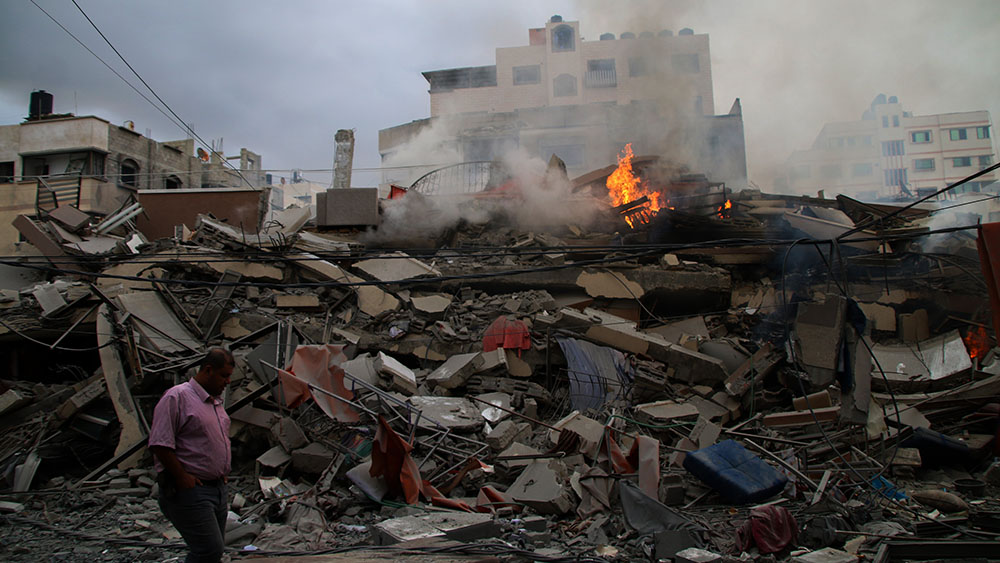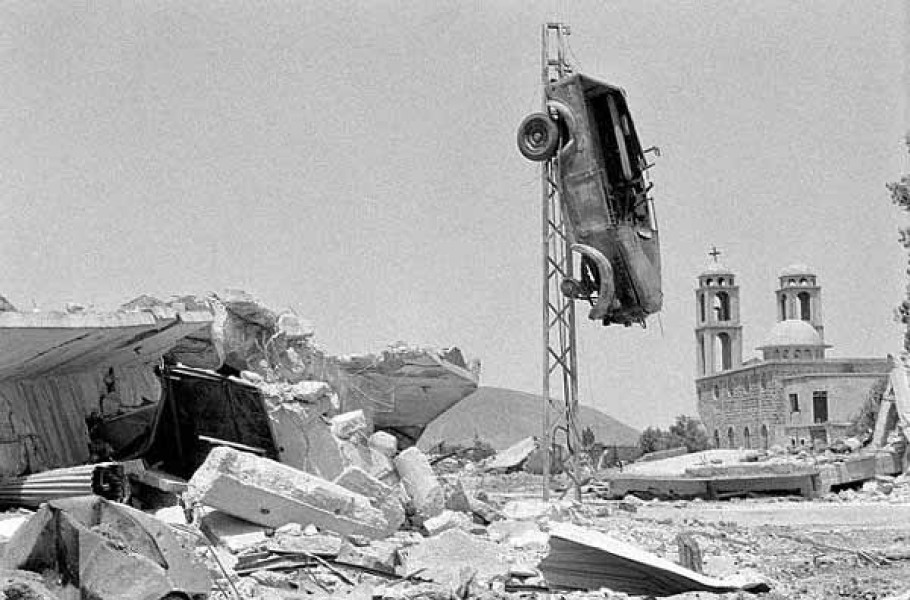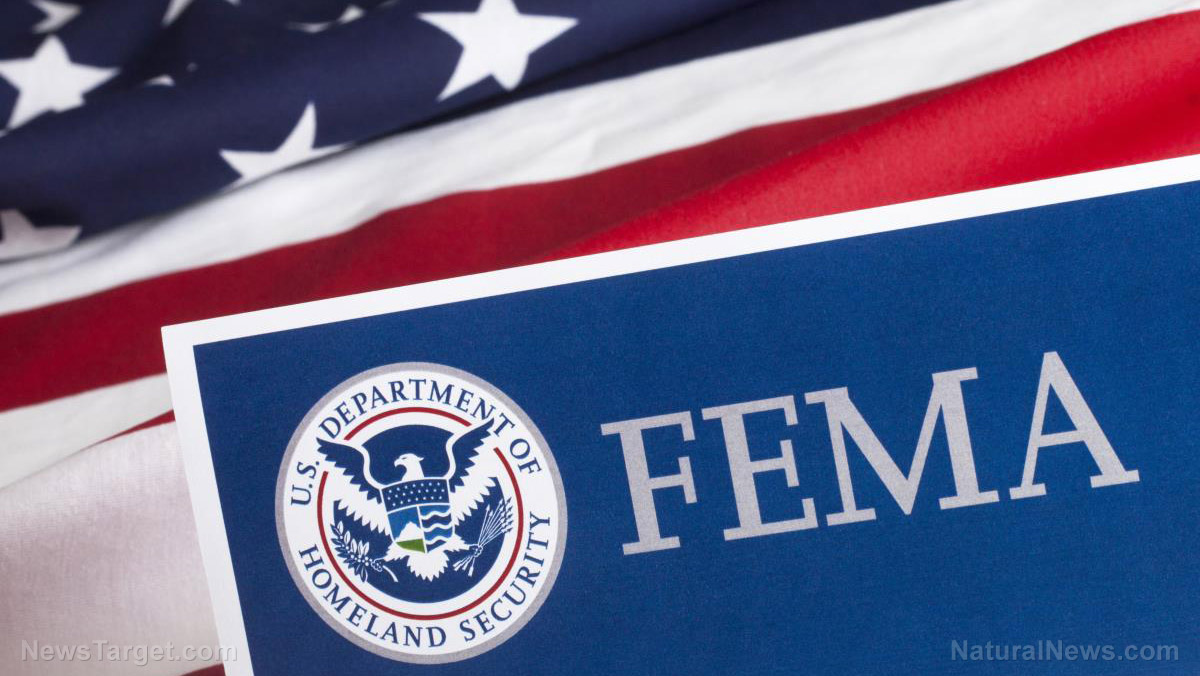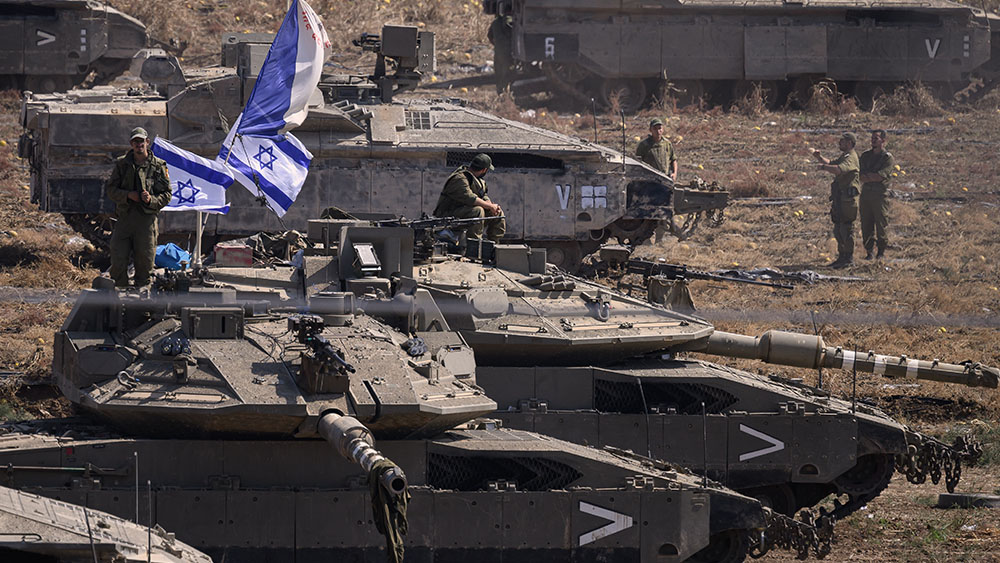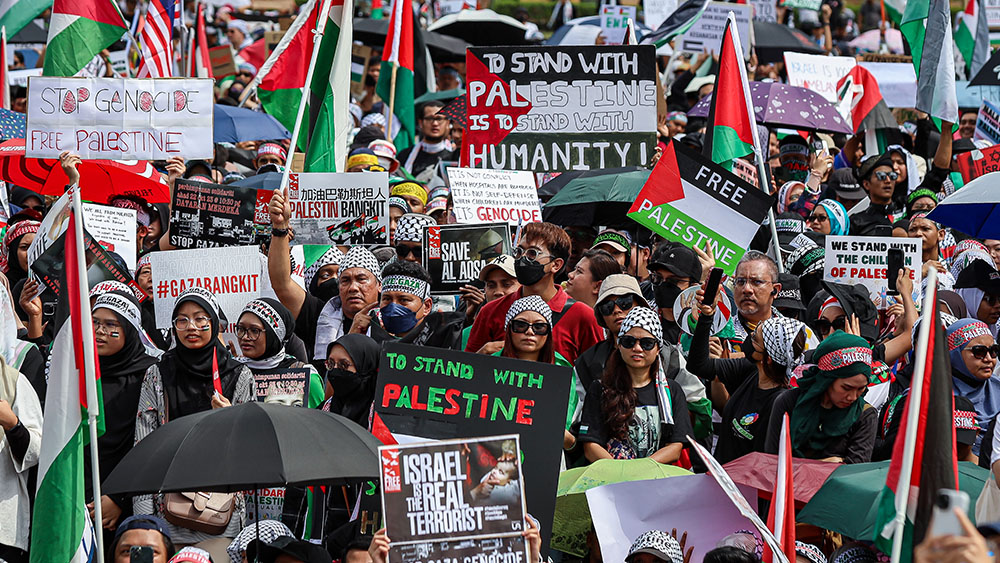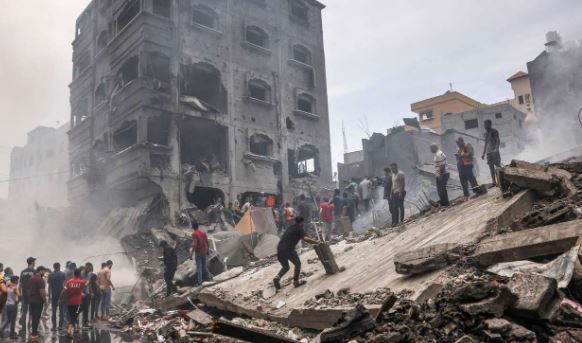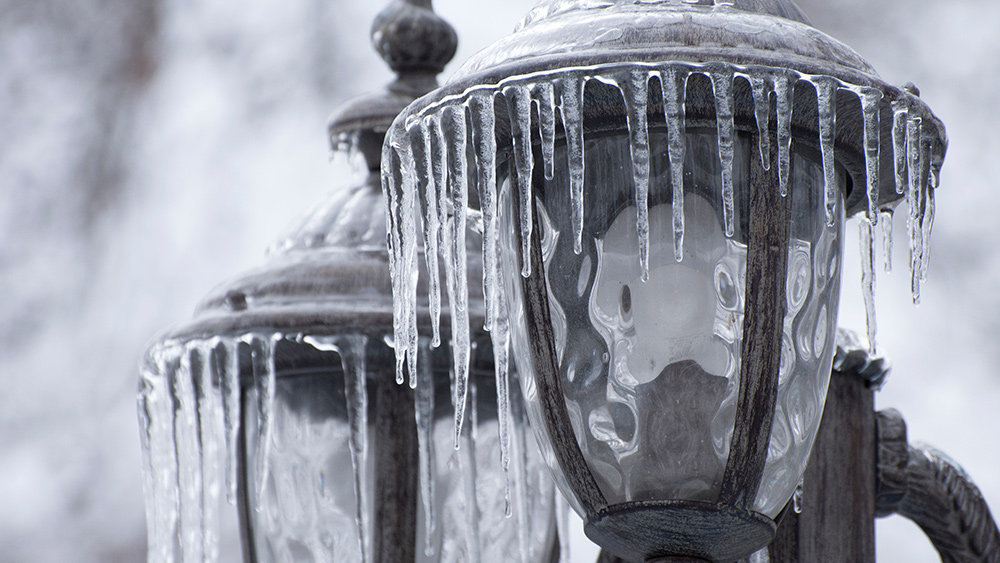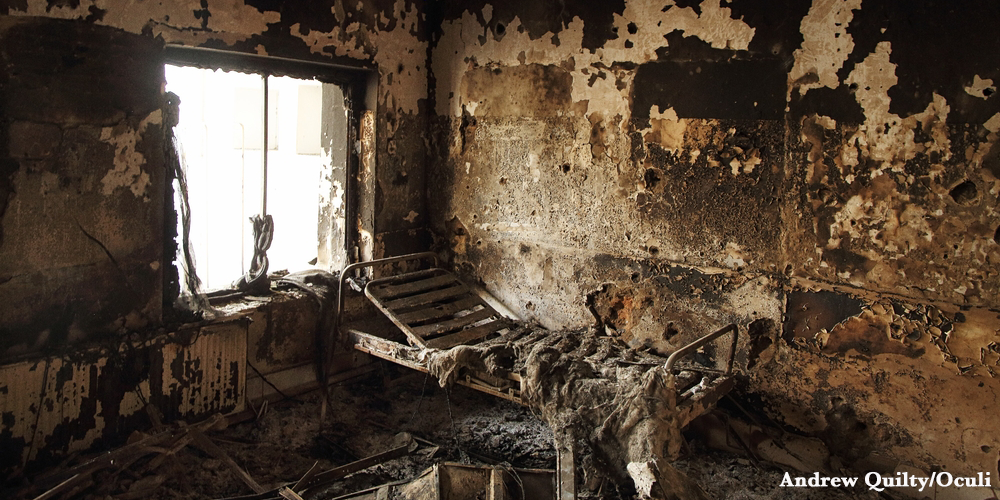A record of truth: Israeli historian documents war crimes in Gaza
12/19/2024 / By Zoey Sky
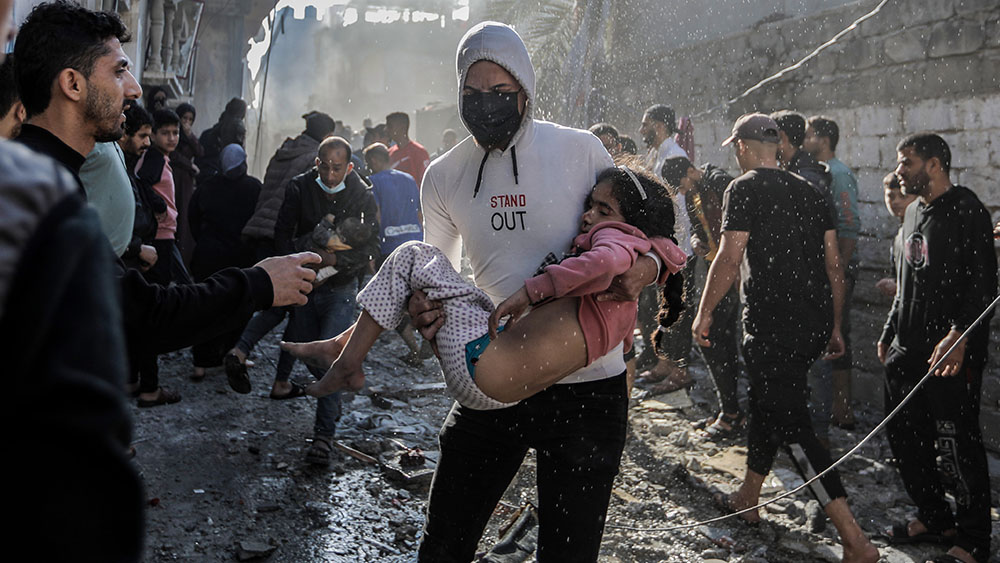
- Israeli historian Lee Mordechai’s report, “Bearing Witness to the Israel-Gaza War,” documents Israel’s actions in Gaza as a series of war crimes since the conflict began in October 2023.
- The report details numerous atrocities, including a Palestinian woman and her child holding a white flag being shot by an Israeli sniper and starving girls crushed to death while queuing for bread.
- Mordechai highlights how media and propaganda have shaped public perception in Israel and the West, enabling the war.
- Mordechai asserts that Israel’s actions in Gaza constitute genocide, emphasizing that genocide does not require death camps but relies on intent to destroy a group through killing, wounding, abducting children or preventing births.
- The report underscores the catastrophic humanitarian crisis in Gaza, with over 44,500 Palestinians killed, including 13,300 children, and widespread destruction of infrastructure. The international community is urged to ask their governments to stop arms transfers to Israel, investigate war crimes and genocide, and hold Israel accountable for its actions in Gaza.
In a world where truth often struggles to surface amid the noise of propaganda and denial, Israeli historian Lee Mordechai has emerged as a rare voice of accountability. His meticulously compiled report, “Bearing Witness to the Israel-Gaza War,” stands as a damning indictment of Israel’s actions in Gaza, documenting a litany of war crimes that have unfolded since the conflict erupted in October 2023.
At a time when the international community grapples with the scale of human suffering in Gaza, Mordechai’s work serves as a vital tool for understanding the atrocities committed and for holding those responsible to account.
Israel’s atrocities in Gaza
Mordechai, an associate professor at the Hebrew University of Jerusalem and a former fellow at Princeton University, is no stranger to the complexities of historical inquiry. But his latest project transcends academia, venturing into the realm of moral urgency.
His 124-page report, filled with over 1,400 footnotes, is a painstakingly assembled database of evidence — eyewitness accounts, photographs, video footage and investigative materials, much of it recorded by Israeli soldiers themselves. According to the Israeli newspaper Haaretz, Mordechai’s report is “the most methodical and detailed documentation in Hebrew (and now in English) of the war crimes that Israel is perpetrating in Gaza.”
The report’s contents are harrowing. Mordechai documents incidents that defy human decency: A Palestinian woman holding a white flag and her child were shot dead by an Israeli sniper; starving girls are crushed to death while queuing for bread; a 62-year-old man, handcuffed and helpless, is run over by an Israeli tank; and air strikes target civilians attempting to rescue a wounded child.
These are not isolated incidents but part of a broader pattern of violence that has claimed the lives of over 44,500 Palestinians, according to Gaza’s Ministry of Health.
One of the most striking sections of Mordechai’s report is his analysis of the role of media and propaganda in shaping public perception. He notes that the current war has been “enabled and facilitated by massive media efforts to shape discourse in Israel as well as in the West.”
This observation is particularly poignant in an era where narratives are weaponized to justify violence. Mordechai’s work challenges these narratives, offering a counter-perspective rooted in evidence rather than rhetoric.
A particularly chilling footnote (379) in the report highlights this disconnect. It refers to a video clip showing an Israeli soldier filming a dog eating the corpse of a Palestinian.
“Wai, wai, he took the terrorist, the terrorist is gone — gone in both senses,” the soldier remarks, before panning the camera to a breathtaking sunset over the Gaza Strip. The juxtaposition of death and beauty underscores the dehumanization that underpins Israel’s military actions. (Related: Trump’s incoming Middle East envoy Steve Witkoff pushing for Gaza ceasefire deal ahead of January inauguration.)
Genocide: A question of intent
At the heart of Mordechai’s report is his assertion that Israel’s actions in Gaza constitute genocide. This is not a claim he made lightly.
In an appendix to the document, Mordechai explains that genocide does not require death camps or gas chambers. Instead, it hinges on the intent to destroy a group, whether through killing, wounding, abducting children or preventing births.
“It all boils down to the commission of acts and the intent, and the existence of both has to be established,” he added.
Mordechai’s conclusion is bolstered by Amnesty International’s landmark report, “You Feel Like You Are Subhuman,” which also concludes that Israel is committing genocide against Palestinians in Gaza.
Amnesty’s investigation, like Mordechai’s, is rooted in extensive evidence, including eyewitness testimonies, satellite imagery and analysis of public statements by Israeli officials. Both reports highlight the deliberate destruction of Palestinian lives, infrastructure and dignity, as well as the systemic denial of humanitarian aid.
The scale of destruction in Gaza is almost unimaginable. Over 44,500 Palestinians have been killed, including more than 13,300 children. Entire families have been wiped out in a single instant, their homes reduced to rubble. Hospitals, schools and mosques have been targeted, leaving the population without access to basic services. The humanitarian crisis has reached catastrophic proportions, with malnutrition, disease and displacement ravaging the population.
Mordechai’s report includes the heartbreaking story of four premature babies who died after Israeli forces evacuated their hospital. A nurse was forced to choose which baby to save, a decision that underscores the dehumanizing calculus of war.
Other footage shows Israeli soldiers forcing prisoners to send greetings to their families or declaring their desire to be slaves. These acts are not collateral damage; they are deliberate, calculated assaults on human dignity.
A record of Israeli war crimes
In a conflict where truth is often obscured, Mordechai’s work serves as a beacon of accountability. His database is not just a collection of evidence; it is a record of crimes that must not be forgotten.
In an era where war crimes are often met with impunity, documentation is a powerful tool for justice. It ensures that the voices of the victims are heard, that their suffering is acknowledged, and that those responsible cannot evade accountability.
As Agnes Callamard, the Secretary General of Amnesty International, has noted, “Our damning findings must serve as a wake-up call to the international community: this is genocide. It must stop now.”
Mordechai’s report is part of that wake-up call, a reminder that silence in the face of atrocity is complicity.
The road to justice is long and fraught with challenges. Israel’s actions in Gaza have been enabled by decades of impunity, supported by powerful allies who continue to supply arms and shield the perpetrators from accountability.
The international community must heed the call for justice. Governments must stop transferring arms to Israel and take concrete steps to end the genocide in Gaza. The International Criminal Court must investigate not only war crimes but also genocide. The global public must demand accountability and refuse to accept the normalization of atrocity.
As the crisis in Gaza continues to unfold, Mordechai’s database remains a vital resource for understanding the full extent of Israel’s atrocities. It is a reminder that the fight for justice begins with the truth — and that the truth, once documented, can never be erased.
Visit IsraelCollapse.com for more stories about the consequences of Israel’s war on Gaza.
Watch this clip about how children in Gaza are “paralyzed with fear” and many are lacking access to basic necessities.
This video is from the Cynthia’s Pursuit of Truth channel on Brighteon.com.
More related stories:
U.S. Navy destroyers successfully repel Houthi missile and drone attacks in Gulf of Aden.
French NGOs file complaints against pro-Israel groups for complicity in Gaza genocide.
Nearly 130,000 children under 10 are trapped in northern Gaza without access to food and medicine.
Former IDF minister admits Israel is ethnically cleansing Gaza to create Greater Israel.
Sources include:
Submit a correction >>
Tagged Under:
Bearing Witness to the Israel-Gaza War, big government, chaos, crimes against humanity, democide, evil, Gaza, genocide, Holy War, Israel, Israel-Palestine war, Lee Mordechai, national security, Palestine, terrorism, truth, unhinged, violence, War crimes, World War III
This article may contain statements that reflect the opinion of the author
RECENT NEWS & ARTICLES
COPYRIGHT © 2017 HUMANITARIAN NEWS

